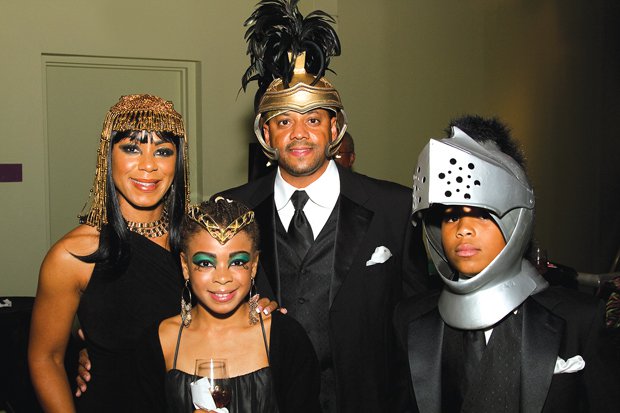There’s yin-yang out the yin-yang when Allen Ginsberg makes a stop at VMI.

Illustration by Gary Howland
It’s hard not to howl when one envisions the antiwar poet laureate of the Kerouac crowd teaching, reading and chatting with cadets at Virginia Military Institute. The scene was (admittedly trimmed) beardo meets Über-groomed chins; beat elite meets military corners; retirement-age gay radical poet meets nascent wing of the U.S. military-industrial complex. And meet they did when Allen Ginsberg, 64, spent three days there as a guest of the English department 25 years ago.
Ginsberg “went all out,” reported the Rockbridge Weekly. “Poetry that doesn’t go all out isn’t very interesting,” he told a Rat (first-year) English class. “It’s like lovemaking. Either you go all out, or you’re a bore”—rhetoric sure to make a vivid point with post-adolescent soldiers. Even if you’ve never read a word Ginsberg wrote, you know he usually does go all out. His Howl and Other Poems blew the lid off as soon as San Francisco’s City Lights published it in 1956, No. 4 in its Pocket Poets Series with the iconic black-and-white cover design. Tumescent with unvarnished scenes of nasty, and scathingly upbraiding mainstream American society, the tiny tome swiftly drew obscenity charges, from which it was soon cleared in a “ringing affirmation of individual liberty and creative expression—and [has been] a flag of revolt, a blow against conformity, a hallowed relic ever since,” as a 2006 story in the New York Times put it.
Ginsberg, a Buddhist who coined the term flower power, took his antiwar message nationwide in the 1960s. At VMI a couple of decades later, though opinions were aired, the ground remained relatively middle. The man who brought Ginsberg to campus is Col. Gordon Ball, professor of English and fine arts. Ball is also a writer, filmmaker and photographer and in the 1960s ran Ginsberg’s farm in upstate New York.
But VMI? queried the Roanoke Times. “Why not?” Ball replied. “Education isn’t a matter of what you’re accustomed to being constantly reaffirmed. Education is a matter of challenge of thought, and VMI is an educational institution.”
Indian gauze shirts and bushiness no longer in evidence, a suit-clad Ginsberg discussed Howl in English class with students who had spent the previous two weeks studying it. He drew parallels between the shortcomings of mid-’50s society and today, wrote the Roanoke paper, and he took on Tar Heel Sen. Jesse Helms, whose blocks thrown at controversial artists and the National Endowment for the Arts had effectively gotten Ginsberg’s work banned from radio and TV. “Why should Big Brother tell us what we can hear?” Ginsberg asked.
Lighter moments intervened. He “burned incense in Jackson Hall, sang poems by William Blake, and read several by himself,” wrote the Rockbridge Weekly. “He told stories about being thrown out of Communist countries and being harassed by the government in America. He praised blues, jazz, and rock-’n’-roll. And he urged cadets to tell him he’s full of it.”
One student, Glen Appel, gave the poet a little grief in class, but stood in line afterward for an autograph of his copy of Howl. He explained his intellectual-collegian behavior: “I was being argumentative.” “That’s OK,” replied Ginsberg. “So was I.”
A little amazed at how polite the cadets were, Ginsberg himself managed to work his politics into a context his audience couldn’t exactly take issue—or offense—with. “Stay in the Army as some sort of agents of liberty,” he said. “Rather than accept tyranny …. safeguard the republic’s Constitution. …. Remember your humanity. Remember your best hearts.”
1914: Snowy Flight
In Tazewell, reports Wytheville’s Southwest Virginia Enterprise, Jim Howery visits the home of Joe Boothe, a “respectable citizen” of Pisgah and father of 11 children. A quarrel ensues and Boothe topples Howery with an ax handle. The attackee is revived and then lays into Boothe. The set-to moves outdoors, resuming with fists and knives. Realizing he is not apt to be the victor, Boothe, without shoes or socks on his feet, hightails it across the snowy, windy hills and o’er fences to the home of O.E. Hopkins, who puts him up for the night. The next day Boothe is taken to the hospital, sure to lose both feet and threatened by peritonitis. They say Boothe saw the only way he could win was to kill Howery and instead risked his own life in the frigid barefoot trek.
1941: Possum Stowaway
Over the holidays, Dinwiddie County’s George Butterworth and friends visit a cabin they own on the York River. They catch a possum, reports Petersburg’s Southside Virginian, and stash it in the luggage compartment of his car, but, home again, there’s neither hide nor hair of the marsupial. He eventually stops trying to figure out how it got away, but a week later his wife notices that the car’s overhead lining is “moving around, making little bulges.” When the covering is peeled back, there’s the possum, having “suffered none from his long abstinence from food and water.” Butterworth presents the beast to fellow Dinwiddie-ite Archie Faggins, but whether Faggins has it for Christmas dinner is not known.
1966: Mad Fox?
It is Saturday, about 8 p.m. Nina Zirkle is walking home after cleaning house for a woman in Rockingham County, when, as she is “getting across a low fence, [is] nipped by a presumed fox”—she can’t tell for sure it’s a fox because it’s so dark and she is focused on crossing the fence. The fox is also presumed to be mad, as alludes the title of the article in New Market’s Shenandoah Valley: “Rabied [sic … no pun intended] Fox Feared in Cherry Grove Area.” Zirkle is taking the unpleasant rabies shot series “to be on the safe side.” The paper warns “all who travel afoot after nightfall or along lonely wooded pathways” of Cherry Grove’s long reputation as a fox woods.










